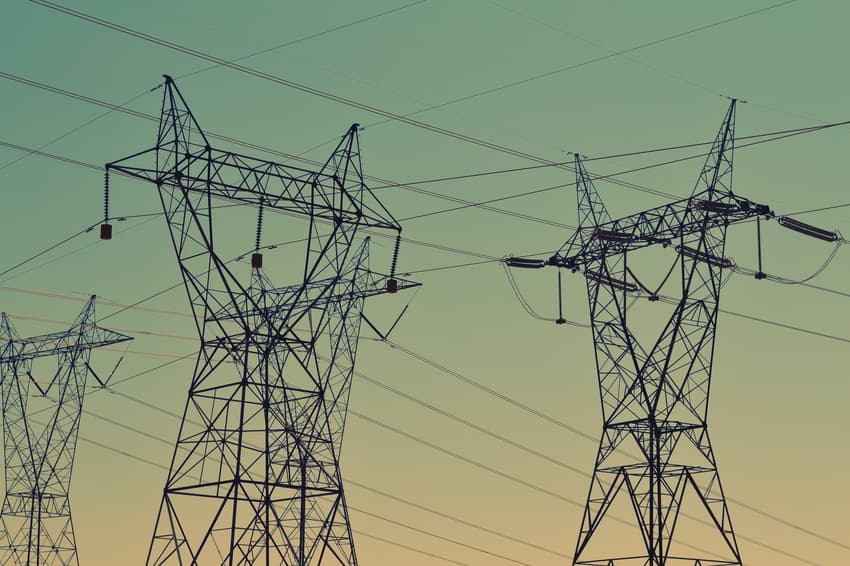Norway's energy directorate says power exports can't be stopped to ease high prices

Power exports to the continent can't be stopped due to high prices as a result of Norway's agreement with the EEA, the Norwegian Water Resources and Energy Directorate concluded Monday.
Norway will not be able to bar power exports to try and bring down electricity prices, the Norwegian Water Resources and Energy Directorate (NVE) said Monday.
The directorate told Norwegian newswire NTB that high energy prices were not a sufficient reason for Norway to block energy exports. The reason for this is that Norway's agreement with the EEA only allows exports to be blocked under specific circumstances.
"The EEA Agreement allows for export restrictions when relevant considerations so require. In our view, security of supply is such a relevant consideration, while protection against high prices is not," Kjetil Lund, director of the NVE, told NTB.
Norway's government had previously asked the regulatory authority to assess how it could limit exports to the continent. The reason for doing so is low reservoir filling levels in east and south-west Norway.
The level of filling of Norway's hydropower reservoirs in parts of the country remains at a record low, which adds to concerns. In the east and south-west Norway, the filling rate hasn't been lower in the last 27 years.
READ ALSO: Why are energy prices still going up?
However, even if Norway were to limit exports due to low reservoir filling levels threatening the security of its energy reserves, it could only do so proportionately. This means that a total cut in exports would require extraordinary circumstances.
Lund said that if Norway implemented measures that were beyond what could be considered proportionate other countries could limit exports to the Nordic country.
"If a possible Norwegian export restriction leads to countermeasures from other countries, the effect could be that our security of supply is weakened, rather than strengthened," Lund said in an NVE press release.
Despite Norway being reliant on hydroelectric power, uncertainty surrounding gas across the continent can be felt in the Nordic country as it is connected to the European energy market via cables that transfer electricity.
Comments
See Also
Norway will not be able to bar power exports to try and bring down electricity prices, the Norwegian Water Resources and Energy Directorate (NVE) said Monday.
The directorate told Norwegian newswire NTB that high energy prices were not a sufficient reason for Norway to block energy exports. The reason for this is that Norway's agreement with the EEA only allows exports to be blocked under specific circumstances.
"The EEA Agreement allows for export restrictions when relevant considerations so require. In our view, security of supply is such a relevant consideration, while protection against high prices is not," Kjetil Lund, director of the NVE, told NTB.
Norway's government had previously asked the regulatory authority to assess how it could limit exports to the continent. The reason for doing so is low reservoir filling levels in east and south-west Norway.
The level of filling of Norway's hydropower reservoirs in parts of the country remains at a record low, which adds to concerns. In the east and south-west Norway, the filling rate hasn't been lower in the last 27 years.
READ ALSO: Why are energy prices still going up?
However, even if Norway were to limit exports due to low reservoir filling levels threatening the security of its energy reserves, it could only do so proportionately. This means that a total cut in exports would require extraordinary circumstances.
Lund said that if Norway implemented measures that were beyond what could be considered proportionate other countries could limit exports to the Nordic country.
"If a possible Norwegian export restriction leads to countermeasures from other countries, the effect could be that our security of supply is weakened, rather than strengthened," Lund said in an NVE press release.
Despite Norway being reliant on hydroelectric power, uncertainty surrounding gas across the continent can be felt in the Nordic country as it is connected to the European energy market via cables that transfer electricity.
Join the conversation in our comments section below. Share your own views and experience and if you have a question or suggestion for our journalists then email us at [email protected].
Please keep comments civil, constructive and on topic – and make sure to read our terms of use before getting involved.
Please log in here to leave a comment.